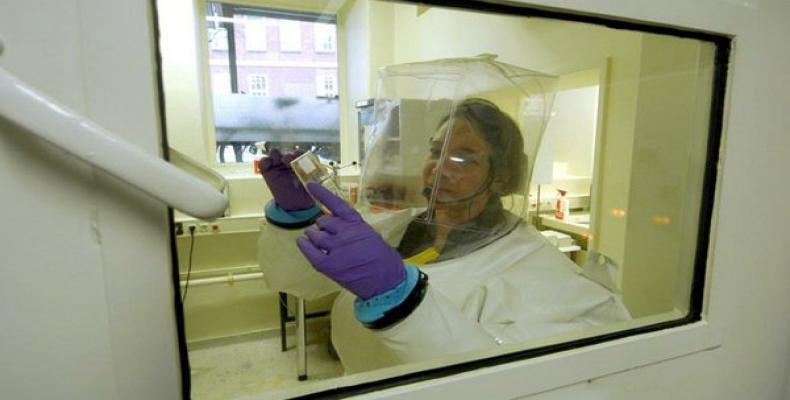Rio de Janeiro, November 20 (NNN-EFE-RHC)-- Brazil's Butanta Institute scientific research center is negotiating an agreement with the U.S. National Institutes of Health to develop a serum against Ebola, authorities said Wednesday.
The details of the accord were discussed in a meeting authorities from the Brazilian state of Sao Paulo held on Tuesday with the director of the Butanta Institute, Jorge Kalil, the latter told reporters.
If the Brazilian government authorizes the accord, the scientific center will use biological material provided by the NIH to begin developing the serum, Kalil said. He estimated the serum would be available for use in humans in nine months.
In contrast to a vaccine, which immunizes the patient by inducing the body to increase production of its own antibodies to defend itself against a virus, the serum introduces antibodies produced by another person or animal.
Butanta Institute, an entity linked to the Sao Paulo state government, will develop the serum using a process already implemented to manufacture a serum against rabies in immunized horses.
Instead of inducing the animals to produce antibodies against rabies by introducing a weakened form of that virus into their bodies, a non-pathogenic Ebola protein will be used in the procedure to develop the serum against the disease.
Brazil and U.S Negotiates Anti-Ebola Serum Creation

Rilataj Artikoloj
Komentarioj
Lasu komentarion
Ĉiuj kampoj bezonatasPliaj Vidaĵoj
- Renato Corsetti ne plu estas inter ni
- Pledas Kubo por fortigi latinamerikan unuecon fronte al usonaj minacoj
- Sudafrika prezidento respondas al minacoj de Donald Trump
- Informoj estas kernaj kaj tial indas postuli al institucioj ĝin transdoni
- Unueco estas la ĉefarmilo de Latinameriko, asertis Nicolás Maduro

